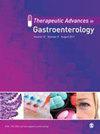Turn over the new leaf of the treatment in peptic ulcer bleeding: a review of the literature.
IF 3.4
3区 医学
引用次数: 0
Abstract
Peptic ulcer bleeding is the most common cause of upper gastrointestinal bleeding, which has a high mortality risk. The standard therapy for acute peptic ulcer bleeding combines medication administration and endoscopic therapies. Both pharmacologic and endoscopic therapies have developed continuously in the past few decades. Proton pump inhibitors (PPIs) already reached a high efficacy in ulcer healing and have been widely used in the past few decades. Endoscopic hemostasis, which includes local epinephrine injection, heater probe coagulation, use of hemostatic clips, and/or band ligation, is highly effective with an overall hemostatic success rate of 85%-90%. However, 10%-20% of patients could not be cured by the current standard combination treatment. Recurrent ulcer bleeding, despite an initial successful hemostasis, is also a big problem for longer hospitalization stays, higher mortality, and higher complication rates, especially for malignant ulcer bleeding. How to manage all types of peptic ulcer bleeding and how to prevent early recurrent peptic ulcer bleeding remain unresolved clinical problems. Recently, several novel medications and endoscopic methods have been developed. Potassium competitive acid blockers have shown a stronger and longer acid suppression than PPI. Hemostatic powder spray and hemostatic gel emulsion are novel hemostatic weapons with emerging evidence, which are potential missing pieces of the puzzle. This literature review will go through the development of endoscopic hemostasis to the prospects of novel endoscopic treatments.翻开消化性溃疡出血治疗的新篇章:文献综述。
消化性溃疡出血是上消化道出血最常见的原因,死亡率很高。急性消化性溃疡出血的标准疗法包括药物治疗和内镜疗法。过去几十年来,药物疗法和内镜疗法都在不断发展。质子泵抑制剂(PPIs)在溃疡愈合方面已经取得了很高的疗效,并在过去几十年中得到了广泛应用。内镜止血包括局部注射肾上腺素、加热器探针凝固、使用止血夹和/或带状结扎,效果显著,总体止血成功率在 85%-90% 之间。然而,10%-20% 的患者无法通过目前的标准综合疗法治愈。尽管初期止血成功,但溃疡复发出血也是一个大问题,会导致住院时间延长、死亡率升高、并发症发生率升高,尤其是恶性溃疡出血。如何处理各种类型的消化性溃疡出血以及如何预防早期复发性消化性溃疡出血仍是临床上尚未解决的问题。最近,一些新型药物和内镜方法相继问世。与 PPI 相比,钾竞争性酸阻滞剂的抑酸作用更强、时间更长。止血粉喷雾剂和止血凝胶乳剂是新出现的新型止血武器,是可能缺失的拼图。本文献综述将回顾内镜止血的发展历程,展望新型内镜疗法的前景。
本文章由计算机程序翻译,如有差异,请以英文原文为准。
求助全文
约1分钟内获得全文
求助全文
来源期刊

Therapeutic Advances in Gastroenterology
Medicine-Gastroenterology
自引率
2.40%
发文量
103
期刊介绍:
Therapeutic Advances in Gastroenterology is an open access journal which delivers the highest quality peer-reviewed original research articles, reviews, and scholarly comment on pioneering efforts and innovative studies in the medical treatment of gastrointestinal and hepatic disorders. The journal has a strong clinical and pharmacological focus and is aimed at an international audience of clinicians and researchers in gastroenterology and related disciplines, providing an online forum for rapid dissemination of recent research and perspectives in this area.
The editors welcome original research articles across all areas of gastroenterology and hepatology.
The journal publishes original research articles and review articles primarily. Original research manuscripts may include laboratory, animal or human/clinical studies – all phases. Letters to the Editor and Case Reports will also be considered.
 求助内容:
求助内容: 应助结果提醒方式:
应助结果提醒方式:


